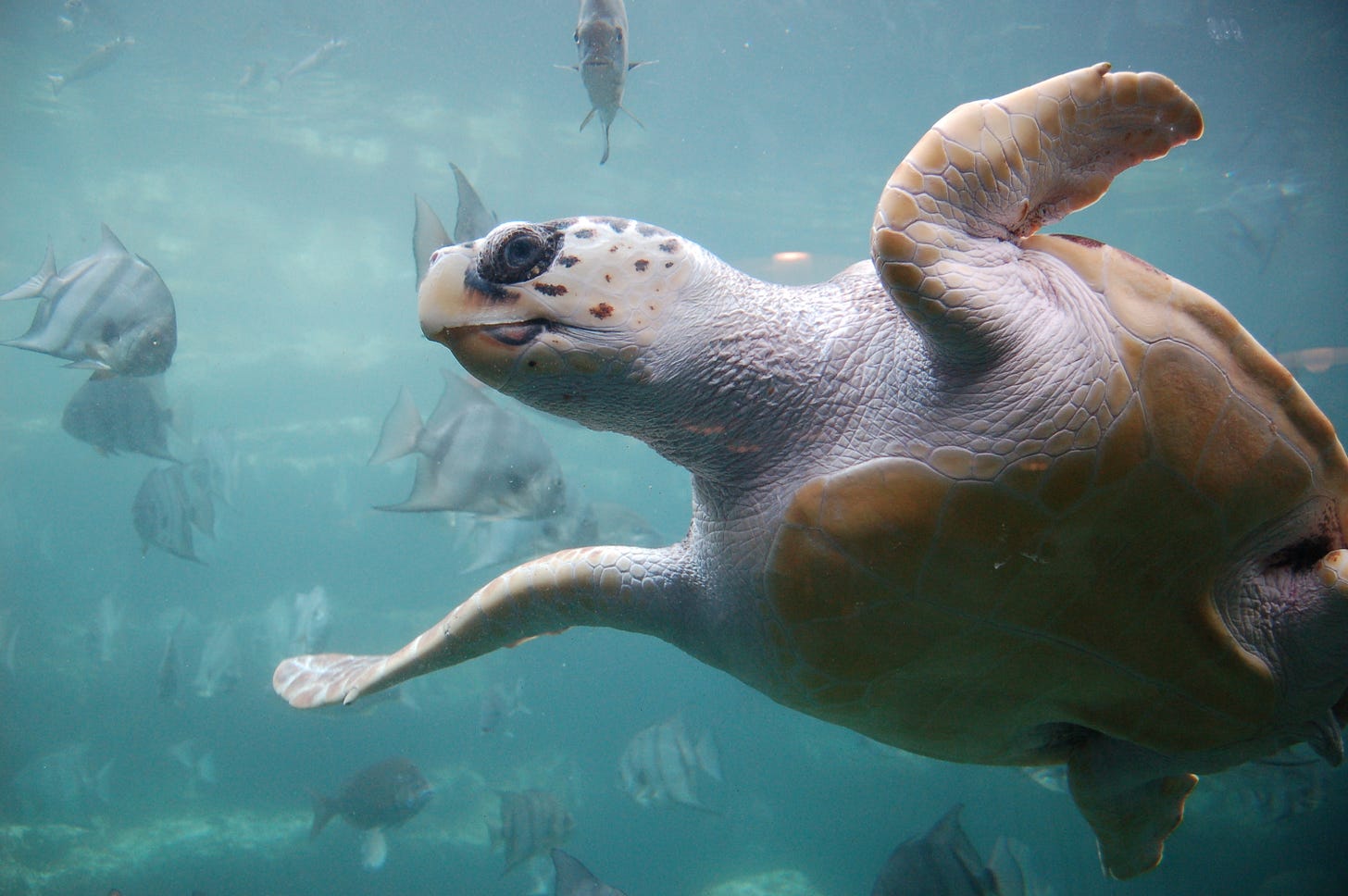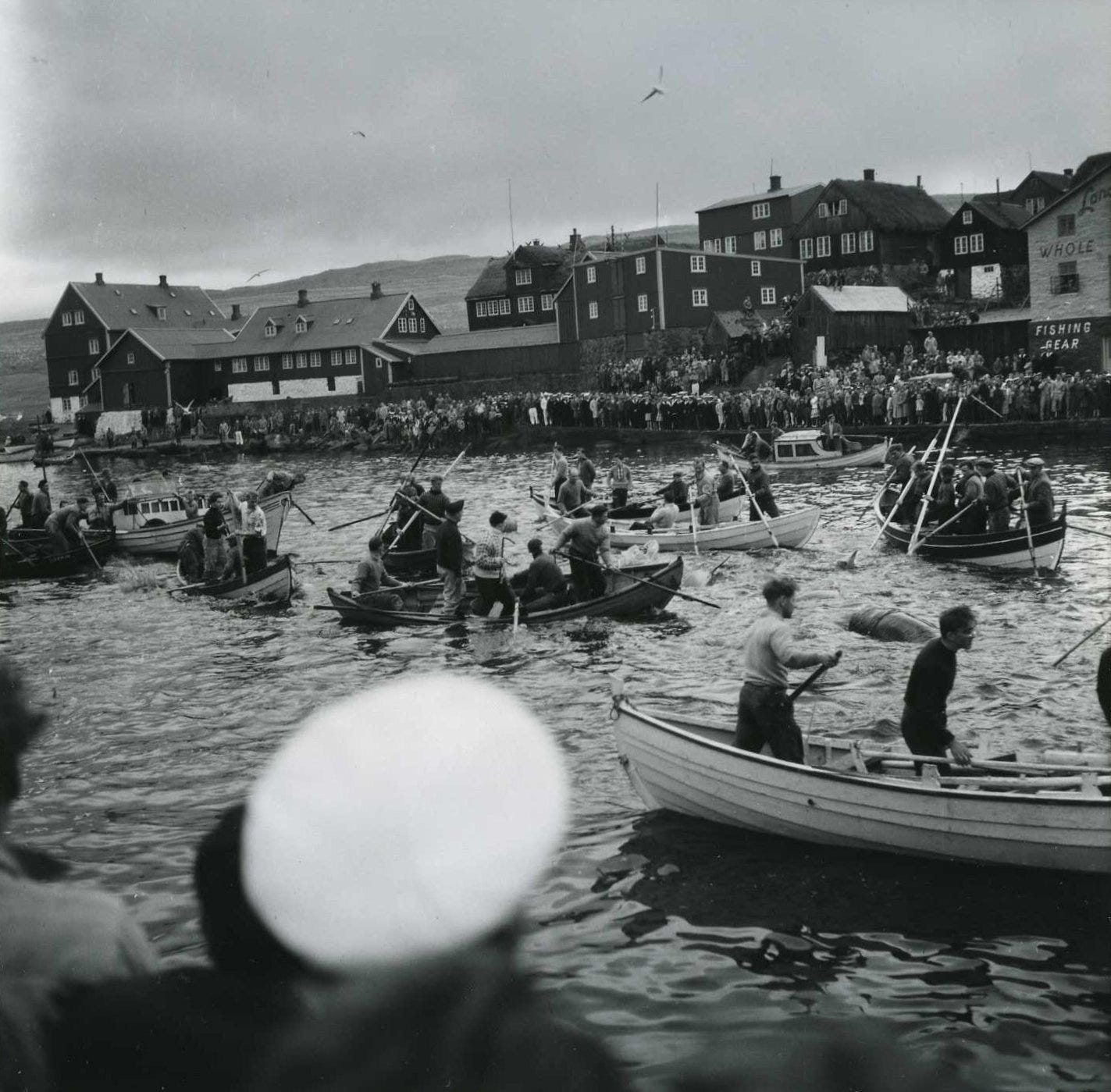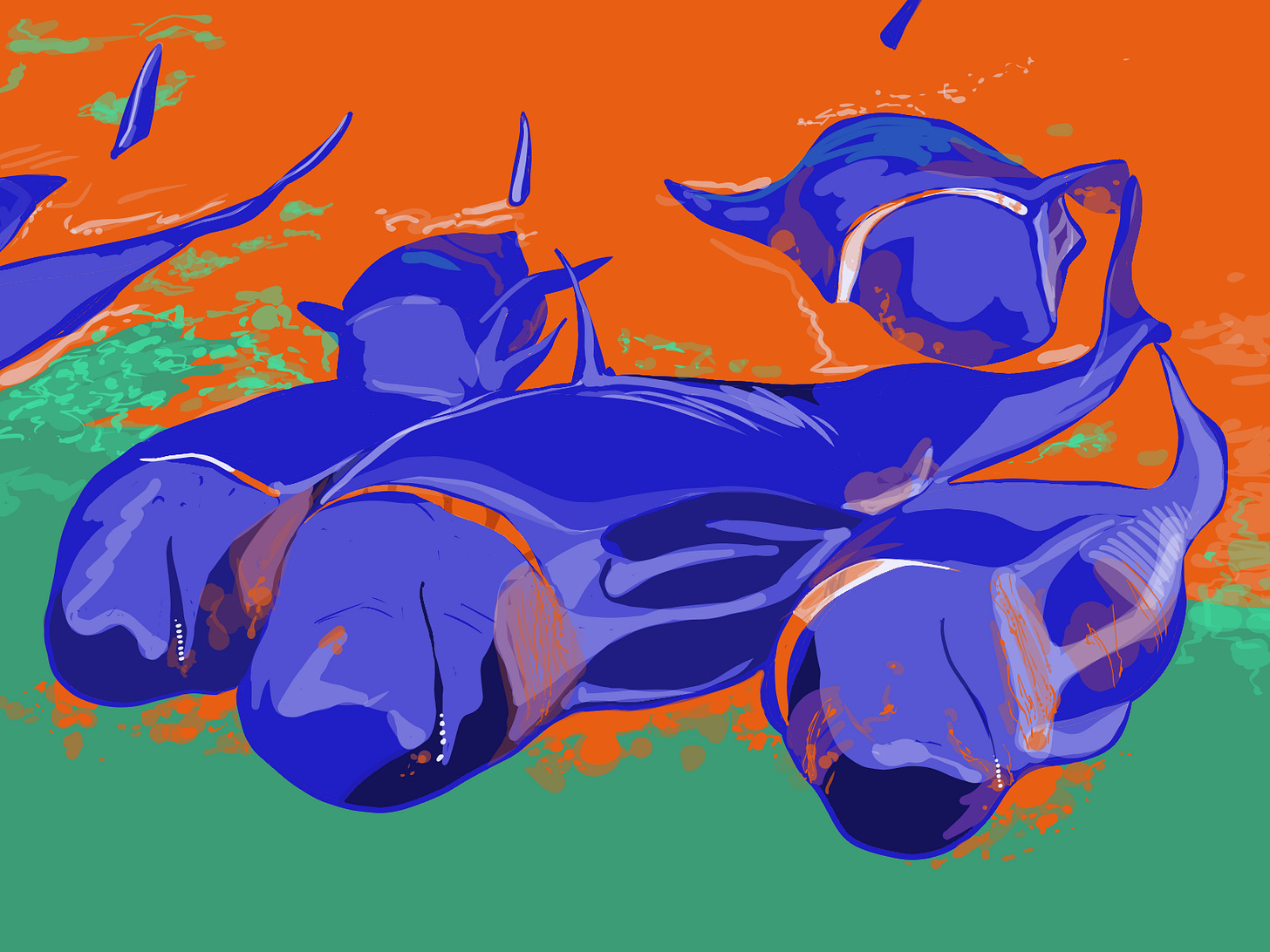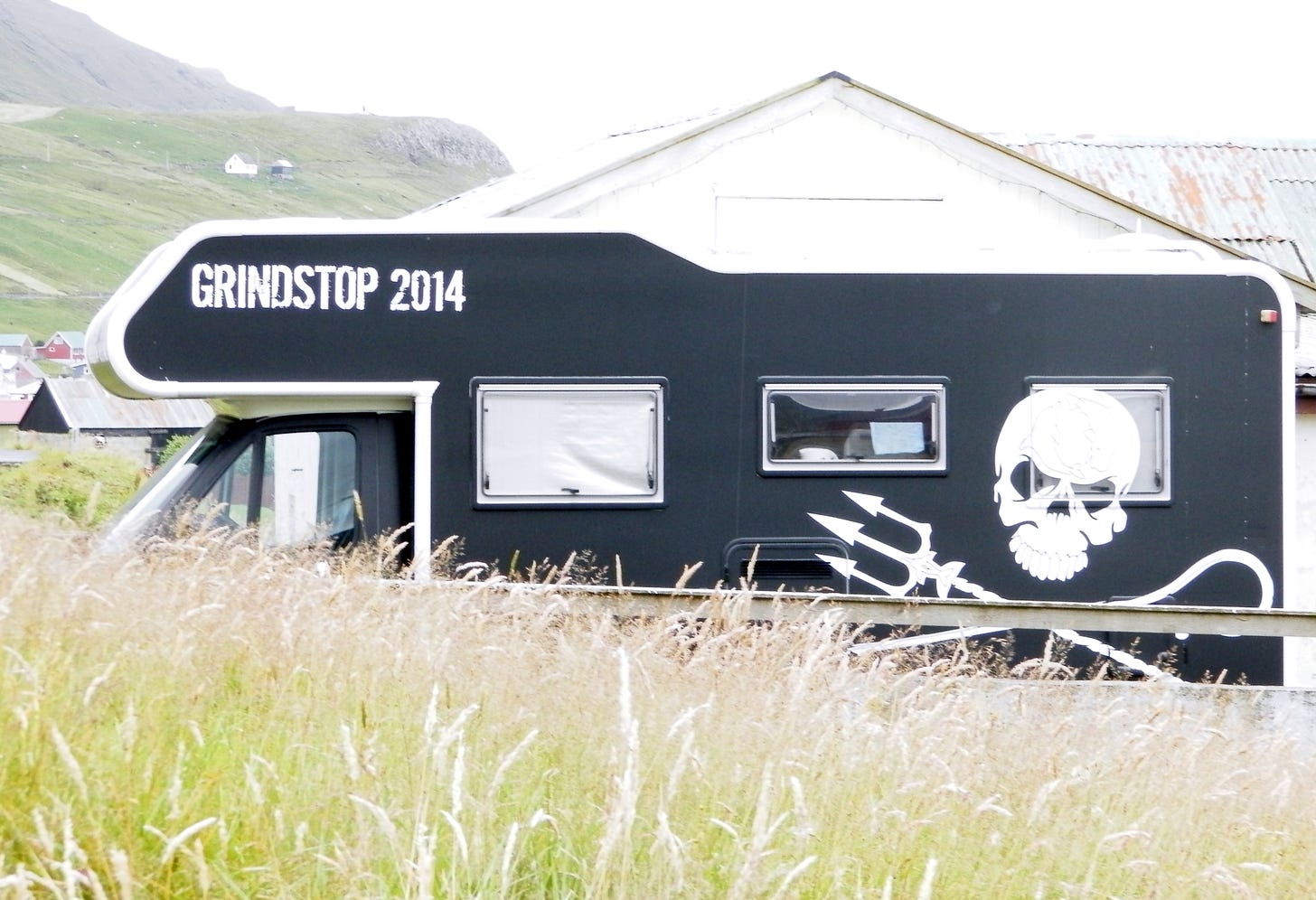How do environmentalists stay resilient?
"I use the tools within my reach", says Mexico-based biodiversity activist Alex Olivera. Plus, a coalition takes on whaling in the Faroe Islands.
🌏 You can expect more positive climate coverage from Ours to Save over 2022, with a deeper focus on video and visuals. As always, the best way to support us is by becoming a paid subscriber. This will ensure we can keep publishing forward-thinking environmental journalism. 🌏
How to save the planet and stay sane: activists and psychological resilience
Alex Olivera is one man advocating for biodiversity in a territory of two million square kilometres. He tells us how he keeps going.
Wildfires in Australia and California, devastating tornadoes and hurricanes in the American Midwest, and record hurricane seasons in the Atlantic… In recent months, we’ve been bombarded with stories of environmental doom.
You’d assume that everyone – in particular those working to protect our environment – would be filled with a paralysing sense of dread. In fact, many of those working long-term at the front lines of environmental action have developed a response mechanism. It’s one that allows them to keep working, turning fear into action even when the odds are heavy-set against them and their work.
One of these individuals is Alex Olivera, who works alone in Mexico on behalf of the Center for Biological Diversity. He is one man in a territory of two million square kilometres and 130 million people.
“I’ve learnt to not put the weight of giant or unrealistic goals on my shoulders. I use the tools within my reach. Additionally, I don’t make my work my life - I have to get away from it and engage myself elsewhere, so I engage in activities outside of this, many related to exercise and nature.”
Where some may regard this as a tactic of avoidance, Olivera disagrees: “It’s not an escape, it’s a reinvigoration. My boss is the environment, and it is an honour to work for the Earth, but if I am exhausted and depressed, that helps no one.”
Olivera’s observations raise important points about what it means to be an environmental activist in our current age, and how to best effect our roles in this sector. They remind us that solution-makers and activists can still be at their best whilst prioritising joy and rest, which in reality are two fundamental components of the environment’s role in our lives.
Equally important to recognise is that our current environmental challenges are systemic, brought about in full by our current social and economic structures. Individual work has an impact – but many of our harmful environmental choices stem from an unsustainable and exploitative economic system.
“Of course we’re here to man the barricades, against overwhelming odds, and maybe it’s a losing battle, but I have to be able to sleep at night knowing who I am. I know the path I have chosen, and I’m giving it my best shot. I measure where I am at by our successes, not by our defeats.”
Olivera’s comments expand the notion of environmental engagement and activism to the rest of us, and are an echo of the now-classic environmental maxim: “Don’t commit the error of doing nothing just because you can’t do everything.” Both silently dreading the fate of our future or conversely attempting to live perfectly sustainable lives are useless to solving the issues at hand.
Maybe, just maybe, learning not what environmentalists do but about how they continue to do it, day after day, can serve as our motivation to join in both their hope and unrelenting action.
Sophie Liebel is an environmental journalist based out of Rochester, New York, who covers topics such as wildlife and bird conservation and community activism.
This archipelago is slaughtering dolphins and whales. Can international pressure halt it?
Stop the Grind is a global, multichannel coalition seeking to stop an annual hunt in the Faroe Islands.
Every year between June and September, in line with a thousand-year-old tradition, hunters kill white-sided dolphins and pilot whales in the shallow water at Skálabotnur beach in the Faroe Islands.
The practice harks back to the Viking age, and is known as Grindadràp or Grind. Its advocates cite its importance as a cultural event, and the use of whale meat and blubber for food.
While the annual catch is on average 600 pilot whales for the Faroe Islands, located in the North Atlantic between Scotland and Iceland, last September hunters slaughtered 1,428 dolphins and dozens of whales in a bloodbath in the annual mass slaughter.
Although the EU banned the killing of whales and dolphins by member states, it does not apply to the Faroe Islands as a self-governing country in the Kingdom of Denmark. Since the Faroe Islands is not a member of the International Whaling Commission (IWC), the Faroese government regulates whale and dolphin hunts itself.
Internationally the Faroe Islands cooperates through the North Atlantic Marine Mammal Commission (NAMMCO) on the conservation of whales and the management of whaling. It considers the population of pilot whales as meeting all the criteria needed for favourable conservation status.
‘In 2012, a partial assessment concluded that sustaining an annual catch of 678 animals (the average annual catch for the 1997–2011 period) required a target population of 50,000–80,000 pilot whales’, it says. ‘The population sustaining the catch is estimated to be over 100,000 whales (NAMMCO 2013).’
Stop the Grind
However, after the last September slaughter, the government of Faroe Islands decided to review and evaluate the way hunts of Atlantic white-sided dolphins are carried out. This is in part due to global uproar from politicians, journalists, activists, and authorities.
Pressure has been steadily building over a number of years. Pamela Anderson, actress and animal rights activist, visited the Faroe Islands in 2014 and wrote a letter to Danish Prime Minister Lars Løkke Rasmussen, asking that Denmark end its support of the Grindadráp.
PETA has created an online petition against what it calls ‘a Stone Age practice in a modern world and cruelty to animals in the name of cultural tradition.’ The petition is addressed to Bárður á Steig Nielsen, Faroese prime minister, and Gudrid Højgaard, CEO of Visit in the Faroe Islands.
Alongside PETA, Born Free has designed an online petition on suspending the free-trade agreement with the Faroe Islands until the slaughter ends for good. Born Free’s Policy Advisor Dominic Dyer called to sanction a trade agreement with the Faroe Islands to end the shameful slaughter of whales and dolphin.
Perhaps most notable is the work of a marine conservation organisation called Sea Shepherd. The group’s focus is direct action, and in 2021 it set up global, multi-stakeholder coalition Stop the Grind.
Sea Shepherd criticised the September 2021 hunt for breaking the laws designed to regulate it. Allegedly the foreman for the district never authorised it, many participants lacked a license, and numerous dolphins were run over by motorboats – thus dying a slow and painful death.
This Grind was ‘so brutal and badly mishandled’ as to attract criticism in the ‘Faroese media and even by many outspoken pro-whalers and politicians in the Faroe Islands.’
Stop the Grind, run in collaboration with impact consultancy Shared Planet, is a space where all parties opposed to the hunt can centralise their efforts. It is supporting Dyer’s call for sanctions, as well as asking retailers to suspend sales of Faroese fish and holidaymakers to steer clear of the Islands.
The organisation is set launch a variety of activities over the coming months and years. Its success looks set to be dependent on collaboration with the aforementioned pro-whalers and politicians, as well as that within its own ranks.
Najmeh Tima is a journalist based in Isfahan, Iran – primarily covering digital privacy.







